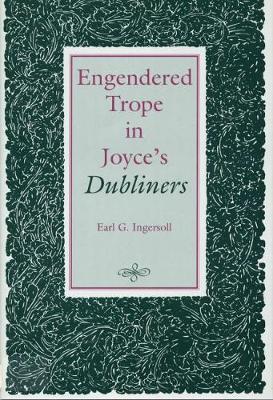Earl G. Ingersoll convincingly argues that his study is a "return to Lacan," just as Lacan himself believed his own work to be a "return to Freud."
In this study of trope and gender in "Dubliners, "Ingersoll follows Lacan s example by returning to explore more fully the usefulness of the earlier Lacanian insights stressing the importance of language. Returning to the semioticas opposed to the more traditional psychoanalyticLacan, Ingersoll opts for the Lacan who follows Roman Jakobson back to early Freud texts in which Freud happened upon the major structuring principles of similarity and displacement. Jakobson interprets these principles as metaphor and metonymy; Lacan employs these two tropes as the means of representing transformation and desire. Thus, psychic functions meet literary texts in the space of linguistic representation through the signifier: metaphor is a signifier for a repressed signified, while metonymy is a signifier that displaces another.
Rejecting traditional psychoanalytic readings of "Dubliners, "Ingersoll s New Psychoanalytic Criticism embraces Shoshana Felman s view that psychoanalysis is not a body of truths to be applied to literature but rather a literature in itself to be read intertextually with what we more conventionally consider literary texts.
In its theoretical framework, this study is Lacanian not by following Lacan as the traditional psychoanalytic critic would follow Freud or Jung as the master explicator of the literary text but by "doing "Lacan. Ingersoll credits Lacan not as the scientist Freud tried and failed to become but as the poet Freud was, especially in his earlier period.
Basing his idea of the connections between gender and the tropes in the writings of feminist theorists and critics such as Luce Irigaray, Jane Gallop, and Barbara Johnson, Ingersoll argues that sex and gender are not necessarily linked. In Dublin, the capital of a patriarchal society, Joyce reveals the relevance of the opposition between metaphor/motion/empowerment as the "masculine" and metonymy/confinement/vulnerability as the "feminine." In this context, metaphor must be privileged over metonymy as "masculinity" is privileged over "femininity" not because what is is right but because Joyce is describing a world that readers have always recognized as morally and spiritually deficient."
- ISBN10 0809320169
- ISBN13 9780809320165
- Publish Date 23 January 1996
- Publish Status Out of Print
- Out of Print 2 February 2012
- Publish Country US
- Imprint Southern Illinois University Press
- Format Hardcover
- Pages 193
- Language English
